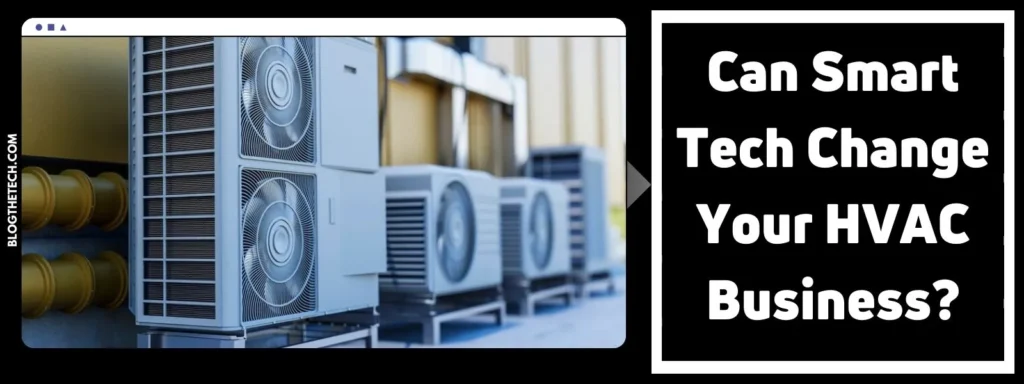Heating, ventilation, and air conditioning (HVAC) is about to go through a huge technological change. As smart technology gets better, HVAC business owners can use these new technologies to streamline operations, improve service delivery, and make the business much more efficient. This change will not only improve operational metrics, but it will also make things better for customers.
Let us look at how the use of cutting-edge technology is changing the HVAC industry and making companies more responsive and able to adapt to a competitive market.
Prioritising Health with Advanced Filtration Technologies
It has become clearer over the past few years that the quality of the air inside our homes is very important to our health. Modern HVAC systems can not only control the temperature, but they can also make the air inside better.
These improvements are especially important in cities where pollution and allergens are common. Modern filtration systems can catch harmful particles, which makes breathing problems much less likely.
When HVAC companies offer health-focused solutions, they not only meet a growing consumer need, but they also stand out as providers of all-around climate control solutions.
The Rise of Smart HVAC Systems
Businesses are changing how they handle climate control technologies because of smart HVAC systems. These systems give you more control and efficiency than ever before, and they can respond instantly to changes in their surroundings.
Smart HVAC units can change their settings automatically based on how many people are in a room and the weather by using sensors and IoT (Internet of Things) technology. This feature makes sure that people are as comfortable as possible while also using the least amount of energy possible.
If HVAC companies can offer these cutting-edge systems, they will become leaders in their field and can also reach new customers who care about the environment and want to buy greener products.
Software Solutions Driving Efficiency
For HVAC businesses today, having the right tools can make a big difference in how well they run. The way companies handle service calls is changing a lot because of dispatching software for HVAC.
This software improves routing and scheduling so that technicians are sent out quickly and with up-to-date information. With shorter wait times and faster problem resolution, this not only speeds up response times but also makes customers happier.
By adding this software, HVAC companies can improve their work flow and handle more calls every day without lowering the quality of their service. This technology helps businesses become more organised and flexible, and getting services to customers on time becomes a key competitive advantage.
Enhancing Customer Interactions with CRM Systems

HVAC companies that want to improve their interactions with customers need to invest in customer relationship management systems. These systems keep useful information about customers, like past service histories and information about their equipment. This lets service be more personalised.
When HVAC professionals have this information on hand, they can give more personalised advice and preventative maintenance tips, which builds stronger relationships with customers.
This smart use of technology not only makes customers more loyal, but it also spreads good word of mouth, which is important for any business that wants to get more customers in a competitive field.
Remote Monitoring and Predictive Maintenance
The use of remote monitoring technologies is a big step forward in keeping HVAC systems in good shape. These systems use sensors and cloud-based technologies to keep an eye on how well equipment is working all the time. When something does not work right, it can set off alerts that let technicians fix the problem before it gets worse and costs a lot to fix.
Using this planned approach to maintenance helps HVAC units last longer and work more efficiently, which saves a lot of money for both the business and its customers. Once HVAC companies use these technologies, they can provide better and more affordable service.
Integrating Renewable Energy Solutions
As people around the world move towards more eco-friendly ways of living, the HVAC industry does not stay behind. More and more people are putting renewable energy sources, especially solar power, into their HVAC systems. These green solutions not only cut down on our use of nonrenewable energy, but they also save us a lot of money on our energy bills over time.
Offering these environmentally friendly choices is not only in line with global trends towards sustainability, but it also appeals to a wider range of consumers who care about the environment. Offering these new solutions can make a business much more marketable and keep customers coming back.
Conclusion
If HVAC business owners use these technologies, they will be ready to lead in a market that values efficiency, sustainability, and great customer service. As time goes on, the question for HVAC professionals is not if they will use these new technologies, but how quickly and well they can do so to keep up with the changing needs of the business.



